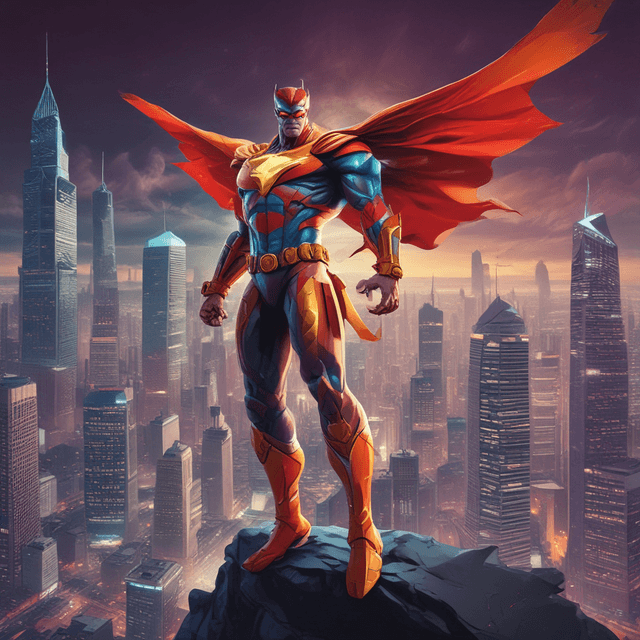
| Role | Shaped political, social and economic upheavals of the 19th and 20th centuries |
| Impact | Continues to echo through the modern world |
| Legacy | Superheroes became celebrities, inspiring reverence and fear |
| Origin | Scientific and technological breakthroughs |
| Emerged | During the Industrial Revolution |
| Influence | Served as agents of both progress and control |
The concept of the "superhero" dates back to the 18th and 19th centuries, when the rapid technological and scientific advancements of the Industrial Revolution enabled the development of extraordinary individuals with abilities far beyond those of ordinary humans. These early superheroes were often creations of corporate or government laboratories, their powers rooted in the latest innovations in fields like chemistry, physics, engineering, and materials science.
Some of the most famous early superheroes included:
Wolfgang von Goethe, a German chemist and inventor who developed groundbreaking techniques in metallurgy that granted him superhuman strength and durability.
Marie Curie, the pioneering French physicist whose experiments with radioactivity granted her the ability to harness and control various forms of energy.
Thomas Edison, the American industrialist and "wizard of Menlo Park" who developed numerous advanced technologies, including an "exosuit" that augmented his physical abilities.
Nikola Tesla, the Serbian-American electrical engineer and visionary whose work with alternating current and electromagnetic fields gave him the power to manipulate machinery and electronics.
These and other scientific pioneers were often sought out by corporations, militaries and governments eager to harness their remarkable abilities for industrial, economic and geopolitical advantage. This close relationship between superheroes and centers of power would have a profound impact on the trajectory of the 19th and early 20th centuries.
As their numbers grew, superheroes became essential tools for the industrialized nations vying for global dominance. They were deployed to protect valuable resources and trade routes, wage espionage, and even directly intervene in armed conflicts. The American Civil War and World War I both saw superheroes fighting on both sides, drastically altering the course of these pivotal struggles.
At the same time, superheroes were also leveraged as symbols of national pride and technological prowess, inspiring the public's awe and patriotism. A new celebrity culture grew up around these powerful figures, with their exploits heavily documented and romanticized in newspapers, novels, and early films.
However, the growing scale and destructive potential of superhero abilities also bred public unease. Concerns mounted over the unchecked power of these individuals, and calls grew for greater regulation and government oversight. This tension between the benefits and dangers of superheroes would only intensify in the tumultuous decades to come.
As the 20th century dawned, superheroes found themselves at the forefront of dramatic social, political and economic changes. They played pivotal roles in events like the Bolshevik Revolution in Russia, the rise of fascism in Europe, the decolonization of Africa and Asia, and the emergence of the United Nations.
In the postwar era, the proliferation of superhuman abilities continued to transform the world. Advances in fields like aviation, computing, telecommunications, and biotechnology were often driven or enhanced by superhero-powered innovations. At the same time, the threat of "supervillains" and rogue superheroes became an ever-present concern, leading to the development of increasingly sophisticated methods of monitoring and controlling these extraordinary individuals.
Today, the legacy of the Industrial Revolution's superhero pioneers remains deeply woven into the fabric of modern society. They continue to capture the public imagination, inspiring new generations of innovators, protectors and visionaries. Yet the fundamental questions of how to harness the power of the superhuman - and who gets to wield it - remain a source of ongoing debate and conflict. The role of superheroes in shaping the future of humanity hangs in the balance.